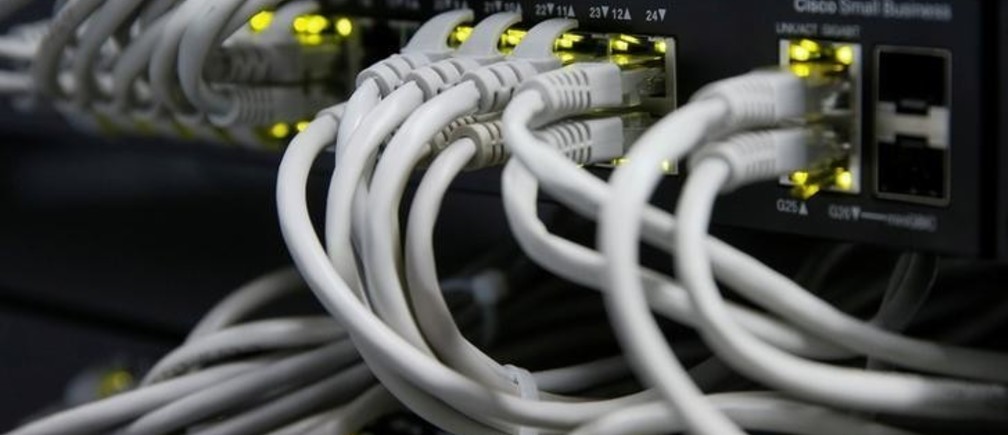End to Net Neutrality
Net neutrality is about everyone having access to the ‘same’ internet. That means internet service providers (ISPs) should not generally interfere with what you can see online.
They can sell customers packages with different overall speeds. But they can’t change data speeds for certain websites, or block them altogether. Net neutrality laws are different in different countries. The US has very strong regulations, which were protected under the Obama administration. Laws are weaker in many other countries, meaning ISPs can offer different packages and give preferential treatment to selected services. In New Zealand, for instance, mobile users can pay to exempt Facebook, Instagram, Snapchat and Twitter from their monthly data limit. Other social media is not included and the data caps still apply. At the moment, not having net neutrality is most noticeable on mobile networks, rather than home broadband because most home broadband no longer has a data cap.
Why Are We Arguing About It?
Net neutrality means ISPs have to follow strict regulations. And, without these, there might be more potential for them to make money. For instance, video streaming websites might pay them to priorities their content. They could also charge consumers different prices, depending on the package they chose. Supporters of net neutrality say regulations help prevent a ‘two-tier’ internet – with some people getting a limited or slower service. Without neutrality, they say smaller web firms could struggle to compete against more established ones who have deals with ISPs. On the other hand, ISPs claim that regulations slow down innovation because it makes networks less profitable.
Is Net Neutrality Under Threat?

After the Federal Communications Commission Restoring Internet Freedom Order and transparency rule amendments became effective June 11, 2018, overturning earlier requirements on net neutrality requirements on internet service providers, state legislators responded by introducing net neutrality legislation at the state level.
Net neutrality is the concept that all data traffic on a network should be treated indiscriminately, where internet service providers (ISPs) would be restricted from blocking, slowing down or speeding up the delivery of online content at their discretion. The current debate surrounding net neutrality is principally about how ISPs should be regulated and what role government should play in overseeing their network management practices.
The rule change places primary jurisdiction over internet service providers’ network management practices under the Federal Trade Commission and preempts states from enacting similar ISP network restrictions as found in the 2015 Open Internet Order.
Attorneys general from 22 states filed a protective petition for review against the FCC in the U.S. Court of Appeals for the District of Columbia.
Thirty-four states and the District of Columbia introduced 120 bills and resolutions regarding net neutrality in the 2018 legislative session. Five states—California, New Jersey, Oregon, Vermont and Washington—enacted legislation or adopted resolutions. California enacted the California Internet Consumer Protection and Net Neutrality Act of 2018. This act prohibits fixed and mobile internet service providers, as defined, that provide broadband internet access service, as defined, from engaging in specified actions concerning the treatment of internet traffic. In a deal with the U.S. Department of Justice, California agreed to not enforce its net neutrality law until the lawsuit challenging the Federal Communications Commission’s repeal of the federal regulations is resolved. In addition, California adopted a resolution urging the FCC to reinstate the 2015 Open Internet Order and urging the U.S. Congress to intervene to protect net neutrality and codify its principles in statute.
New Jersey adopted a resolution urging the President and Congress of United States to restore “net neutrality” in federal law. Oregon prohibited public bodies from contracting with broadband Internet access service providers that engage in certain network management activities based on paid prioritization, content blocking or other discrimination.
Vermont required an internet service provider to certify that it is following consumer protection and net neutrality standards in order to be eligible to receive a government contract for internet service beginning April 15, 2019 or the date on which the governor’s Executive Order No. 2-18 (internet neutrality in state procurement) is revoked and rescinded, whichever is earlier. The act also required the attorney general to review the network management practices of ISPs in Vermont and determine whether they are following the 2015 FCC net neutrality rules and to disclose those findings on a publicly available website.
Washington required a person providing broadband internet access service in the state to publicly disclose accurate information regarding the network management practices, performance characteristics, and commercial terms of its services sufficient for consumers to make informed choices regarding the purchase and use of the services and entrepreneurs and other small businesses to develop, market, and maintain internet offerings. Further, the law prohibits a person engaged in the provision of broadband internet access service in the state from: (1) Blocking lawful content, applications, services, or nonharmful devices; (2) Impairing or degrading lawful internet traffic on the basis of internet content, application, or service, or use of a nonharmful device; or (3) Engaging in paid prioritization.
Separately, legislators have introduced measures that would restrict ISPs’ use of customer information and adopt privacy protections. For example, two states, Nevada and Minnesota prohibit disclosure of personally identifying information, but Minnesota also requires ISPs to get permission from subscribers before disclosing information about the subscribers’ online surfing habits and internet sites visited.

Net Neutrality In Europe
The EU’s Open Internet Regulation grants end-users the directly applicable right to access and distribute the lawful content and services of their choice via their Internet access service. It preserves the principle of net neutrality i.e. internet traffic shall be treated without discrimination, blocking, throttling or prioritization. At the same time, the EU net neutrality rules allow reasonable traffic management and, with the necessary safeguards, “specialized services”; those are services which assure a specific quality level, required for instance for connected cars or certain 5G applications.
The enforcement of the open internet rules is an important task of national regulatory authorities which should respect the guidelines adopted by Body of European Regulators for Electronic Communications (BEREC) in August 2016. The Commission continues to monitor closely the application of the Regulation.
In the EU, it is not up to internet service providers to arbitrate the success or failure of the services and content distributed. European internet users are thus protected and can continue using the internet as they are used to.
Will Brexit Change Anything?
After Brexit, EU net neutrality laws would no longer apply. It is also possible that the UK could leave BEREC, the European regulator on neutrality. The UK government has signaled that it intends to transfer the EU rules over to UK law. However, it is possible that Parliament could make amendments before it is passed.
Net Neutrality In Pakistan
The consequences for Pakistan are same as that of other developing countries. Pakistani companies and new startups that have the potential to become the next big internet base company like Google or twitter may not be able to reach customers in the US, if an ISP decides to block them or charge them extra this will limit their reach, they need a free hand rather than throttling.
One of the more worrying scenarios in the post net neutrality arena is the desire for paid prioritization by broadband service providers. Broadband companies will have the legalized advantage to ask service providers to pay hefty amounts to ensure that their content reaches customers without any interference. This would make things harder for the smaller internet service providers and internet startups.

